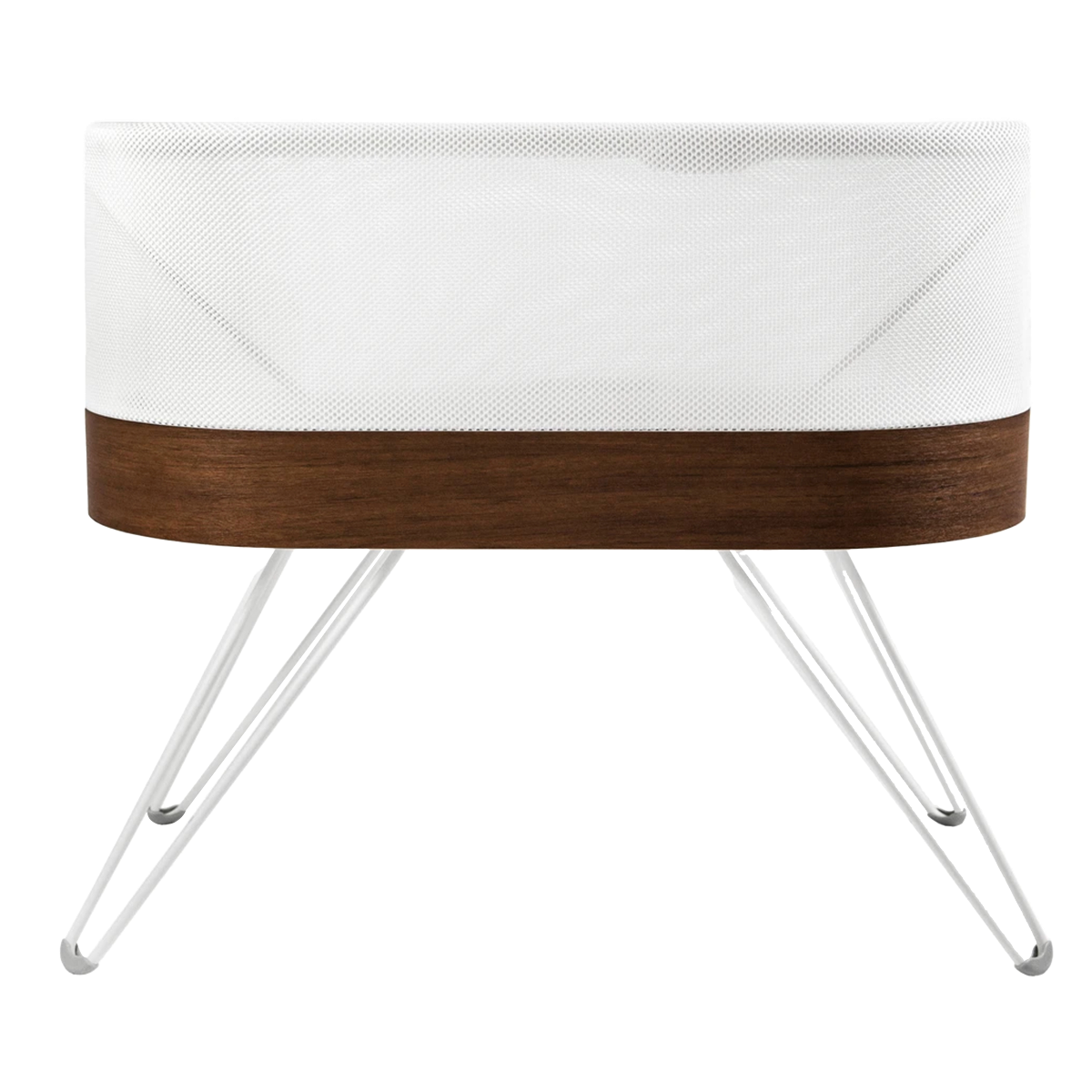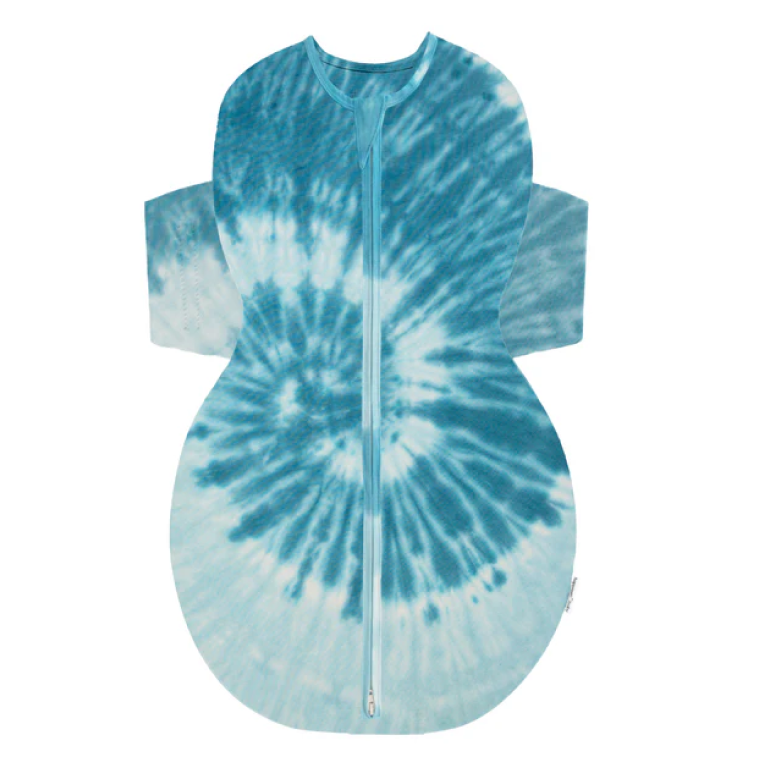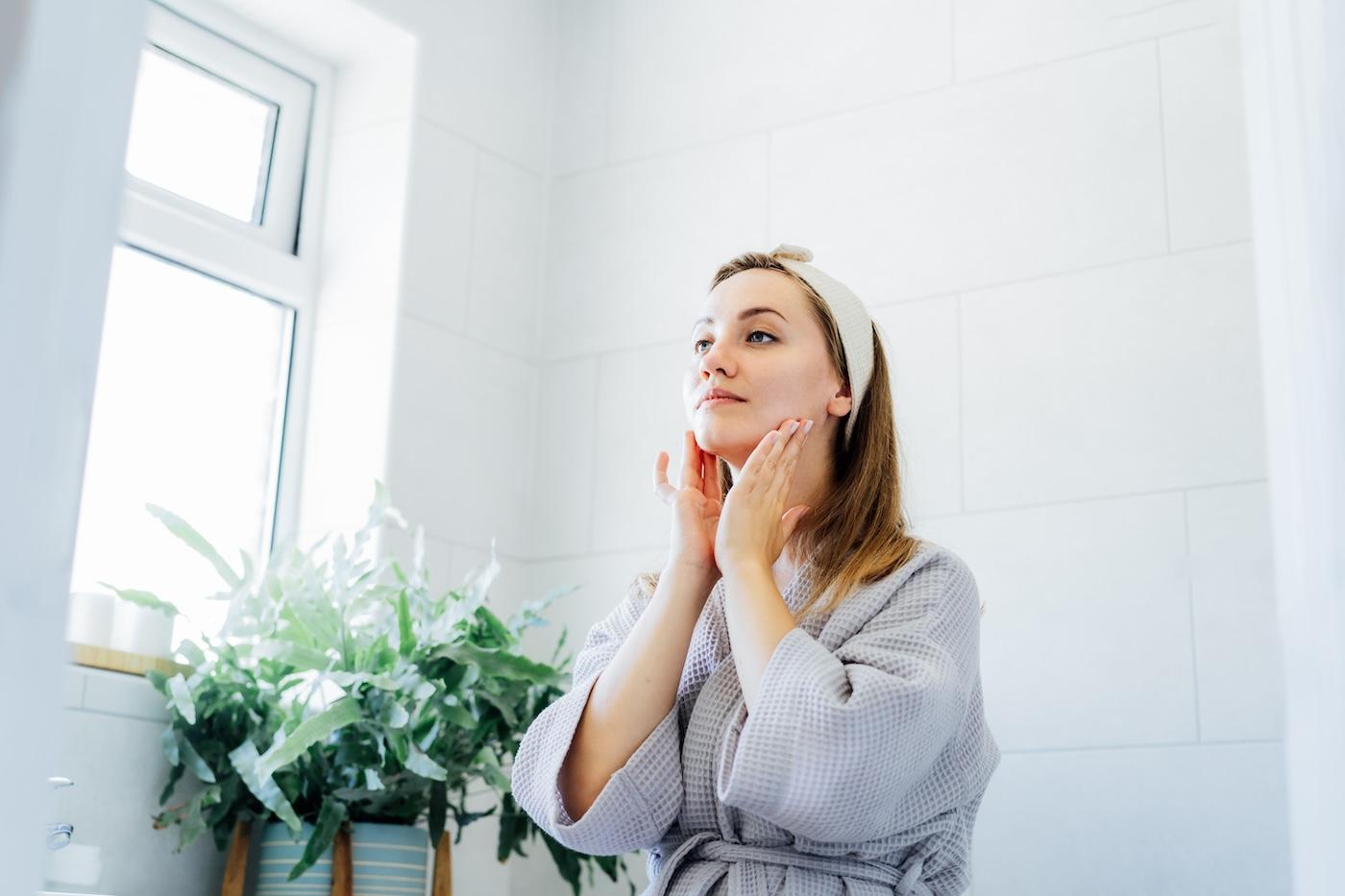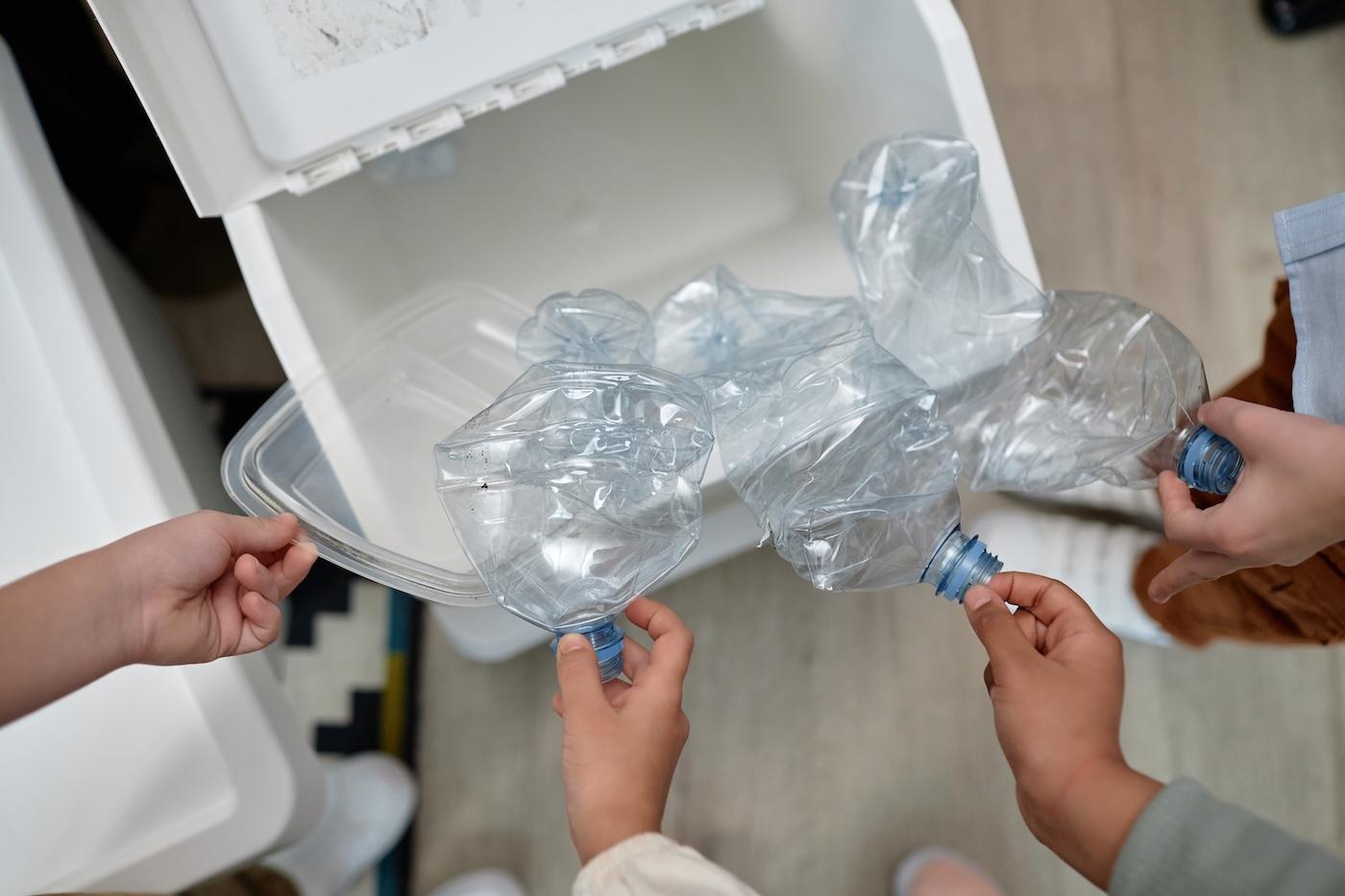PARENTS
5 Ways to Protect Your Kids From Guns
We know that kids are naturally curious. We also know that one-third of American kids live in a home with guns—many of which are stored unsafely.

Written by
Happiest Baby Staff

There are so many safety precautions we take as parents. We put a gate at the top of the stairs. We lock up cabinets that house toxic cleaning products. We cut grapes into quarters to prevent choking. But in many homes there’s an even bigger danger to contend with: guns.
We know that kids are naturally curious. We also know that having an unlocked, fully loaded gun in the home can be deadly. Today, one-third of American kids live in a home with guns and roughly 85% of firearm deaths in children ages 12 and younger occur in the home. That's why firearms are now the number one cause of death for children in the United States.
If you have a gun in your home, if you are considering getting a gun, or if your child may play in a home where a firearm is present, there are some basic safety protocols that you can take to ensure that your family remains safe—and that your firearm doesn't end up in the wrong hands.
Take a gun safety course.
If you've never owned a firearm before, or if it's been a long time since you’ve used one, it’s a wise idea to brush up on gun safety. Many professional organizations offer courses that teach you everything you need to know about how your weapon operates, how to store it safely, and how to dispose of it when you think you want to stop using it.
Store guns safely.
The safest way to keep a gun in your home is to make sure it is unloaded and locked away from little ones. Hiding it simply isn't enough. After all, 75% of children who live in homes with guns know exactly where they're stored. Here are some smart storage tips:
- Keep your firearm unloaded with the safety lock on.
- Use a lock box, safe, or other secure facility to store your firearm. (Safe Kids Worldwide suggests using combination locks and safes, or safes that use fingerprint recognition locks.)
- Use gun trigger locks.
- Store your locked firearms where children cannot see them, and never leave them out in the open such as on a table.
- Hide storage keys and lock combinations from children.
- Store ammunition separately from the firearm in a lock box to reduce the risk of accidents.
- Store your locked firearm and locked ammunition outside of your house.
It's a good idea to apply similar care when storing non-powder and air-soft guns, like BB guns, paintball guns, and pellet guns since these other “guns” can cause serious injuries when used improperly. (Learn about getting a free Project ChildSafe gun safety kit, which includes a cable-style gun lock and safety instructions.)
Ask about guns in the home before playdates.
It's common practice to ask lots of questions about safety before dropping the kids off at a new friend’s home. You probably already think to ask questions like, Who is supervising? Are there pets in the house? Or maybe you ask about screentime or food allergies. But one question that many parents don't think to ask is: Are there guns in the house?
More than one-third of all unintentional shootings that involve children or teens happen when kids are visiting a home with firearms. If there is a firearm in a playmate’s home, you may want to offer to host instead.
If you are going forward with the get-together, make sure you are clear on what precautions they have taken to keep firearms out of little hands. It might be an awkward conversation, but it’s too important to skip. On the flip side, if someone visiting your home has a gun with them, ask them to secure it in the trunk of your car where you can lock it up and keep your kids away from it.
Gun Safety Sample Scripts
If you’re having a hard time figuring out how to ask a fellow parent about firearms in the house, remember this: All parents want to keep their kids safe. Asking about guns is not about judgment, it’s about safety. To help get the conversation started, here are some sample texts to send before your kiddo’s next playdate.
- “Thanks for inviting Elle over! Since she hasn’t been to your house before, I have to ask my go-to playdate qs! Do you have a dog? Elle’s anxious around them! Do you have any firearms? If so, are they safely locked up and stored unloaded? TY!!”
- “Thanks for hosting! Now I get to ask you my standard safety qs! Do you have a trampoline, a pool, or a gun at your house?”
- “Do you have cats, nuts, or guns in the house? Soren is allergic to the first two and I just want to make sure the last one is locked up if you have one. Let me know!”
- “Mya is excited for the playdate! Fair warning: She’s super curious and loves to explore, so I need to ask if there’s a lock on your pool gate and if there are any unlocked guns in your house?”
- “This is kind of awkward, but I have to ask: Do you have any unlocked guns in your home? I ask before all of Soraya's playdates!”
- “Before Noah's playdate last week, the mom asked if we had any guns in the house. I never thought to ask before, so it’s now my question, too! Can you let me know if you have any firearms in the house and how they’re stored?”
- “Asking about guns seems to be the new pre-playdate safety question! A friend of ours has a gun, but it’s locked up, unloaded, and out of sight. Does your family have firearms?”
- “I hate to be a downer, but I just read a sad article about a little boy who found his father’s gun. It makes me really nervous, so I have to ask all M’s playdates if there’s a firearm in the house. If you’ve got one, can you share how you keep it stored?”
What to Say If There Is a Gun in the Home
If you’re not comfortable with your host’s response, here are some gentle exits:
- “Thanks for letting me know! I’m nervous about Aiden playing somewhere with a gun that isn’t locked away, so how about we meet up at the park instead!”
- “Thanks for the heads up! Knowing that there’s a gun around and how curious Max is, I’d feel more comfortable hosting at our place. Does Thursday work?”
- “I appreciate the warning. I’ve seen too many sad stories about kids hurting themselves when guns aren’t locked away, so we’re going to pass this time. We’d love to see you and Lily at the pool soon though!”
- “Thanks for your honesty! With the way Simon gets into everything right now, I know I would spend the whole time worrying. If the weather’s nice, would you be up for a playground meetup instead?”
How to Talk to Your Kids About Firearms
Knowledge is power. It is crucial to talk to kids about guns and gun safety so they know exactly what to do if they stumble across a gun. And don't assume your child know the difference between a toy gun and a real gun. About 16% of unintentional firearm deaths among kids under 13 occur when the gun was mistaken for a toy! To help keep your child safe, explain that they should never touch a firearm, and should they find one at a friend's home, they should tell an adult right away. To hit the message home, go over what your child should do if they see a gun:
- Stop what you're doing.
- Don't touch the firearm, even if it looks like a toy.
- Exit the area where the gun is.
- Tell an adult right away.
It's also important to remind kids often that the kind of gun violence they might see in the media is very different from real life. You might get several lives in a video game, but you only get one in reality, and when it comes to guns, kids can get hurt or killed.
What To Do: Firearms and Mental Health
When a loved one is experiencing a mental health crisis, having a firearm in the mix can have deadly consequences. In fact, 40% of suicides among children and teens involve guns. And 90% of those involved guns that the child or teen accessed at their own homes or from a relative's home. Here are some tips to consider if this situation applies to your family:
- Remove all firearms from your home if the person in crisis is living with or visiting you.
- Ask for help. If you think someone is in crisis and may be harmful to themselves or others, contact the Substance Abuse and Mental Health Services Administration (SAMHSA) at 1-800-662-HELP (4357).
By talking to your children about gun safety inside and outside your home, you can help prevent serious injury…or even death. For more information on gun violence prevention, check out everytownsupportfund.org.
More on Keeping Kids Safe:
- How to Prevent Accidental Hot Car Death
- Keep Your Family Safe With These Fire Safety Tips
- Will Swim Lessons Keep Your Tot Safe?
- Baby Crib Safety 101
Disclaimer: The information on our site is NOT medical advice for any specific person or condition. It is only meant as general information. If you have any medical questions and concerns about your child or yourself, please contact your health provider.
SHARE THIS ARTICLE
MOST LOVED
Sleepytime Sidekicks












